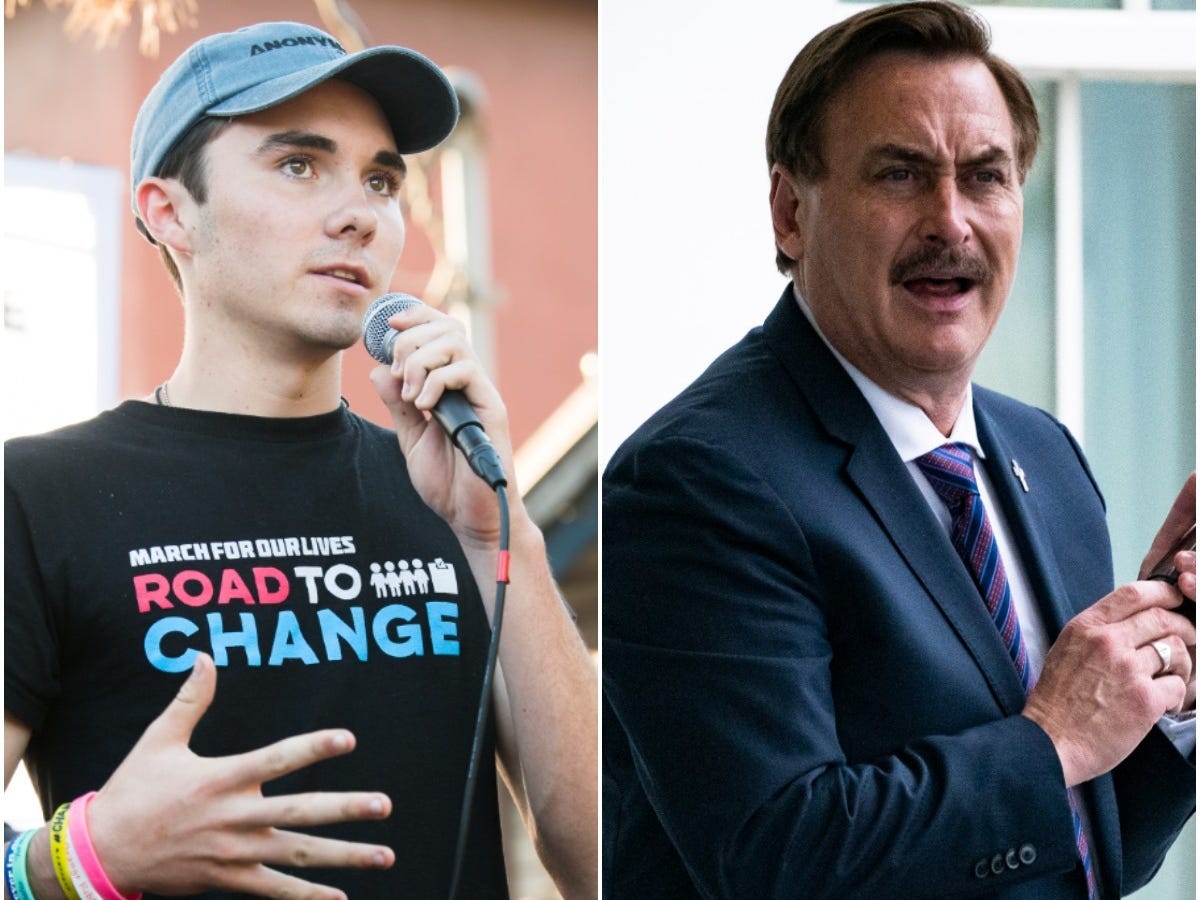
Emma McIntyre/Drew Angerer/Getty Images
- David Hogg announced Saturday he is stepping down from his pillow company, Good Pillow.
- The Parkland shooting survivor launched the company to compete with Mike Lindell's MyPillow.
- Cofounder and tech mogul William LeGate will continue the mission to build an ethical company.
- See more stories on Insider's business page.
Parkland shooting survivor and pillow entrepreneur David Hogg announced Saturday he is permanently stepping away from his company, Good Pillow.
Taking to Twitter, he said: "Effective immediately, I have resigned and released all shares, any ownership and any control of Good Pillow LLC."
The reason for his departure was due to "personal commitments," including taking the time to "focus on studies in college" and "advance the gun violence prevention movement."
In another tweet, Hogg said: "While the tragedy and trauma I experienced does shape me, like many other survivors of gun violence, it is not even close to who I am fully and I am looking forward to using this time to grow myself as an organizer, friend, son, and brother."
The 20-year-old Harvard University student launched Good Pillow to do battle with conservative MyPillow CEO Mike Lindell. Hogg aimed to "run a better business and make a better product all with more happy staff than Mike the pillow guy while creating US-based Union jobs and helping people," Insider's Sophia Ankel previously reported.
Hogg launched the rival company after teaming up with tech mogul William LeGate. Lindell greeted his competition with ambivalence when he told Axios there's "nothing wrong with competition that does not infringe on someone's patent."
Now, with increasing commitments to studies, family and activism, Hogg felt it necessary to cut ties with his company and let LeGate continue the mission to build an ethical company.
Lindell's company has seen a drop-off in support by some retailers in recent months. In an interview with Insider's Grace Dean, Lindell said 22 retailers, including Kohl's and Bed Bath & Beyond, pulled MyPillow's products after he was found spreading voter-fraud conspiracy theories. He told Insider this could cost him $65 million.
Most recently, the brand's products vanished from Costco's website. Insider asked Costco whether it had cut ties with the brand but the retailer declined to comment.